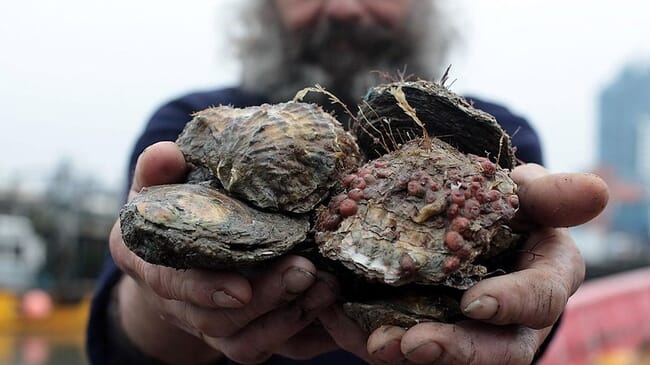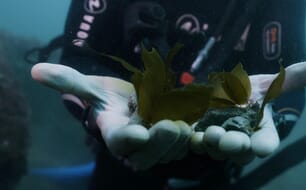
© Blue Marine Foundation
In a groundbreaking collaboration, The Roslin Institute, The Oyster Restoration Company, Native Aqua, and Xelect have joined forces in an attempt to reverse the worrying declines in European native oyster populations. Due to a combination of overharvesting, pollution and disease, native oyster populations have fallen to less than 5 percent of their historical levels, and so this initiative marks a significant milestone for both ecological restoration and responsible seafood production.
The collaboration will focus on identifying genetic markers that confer resistance to Bonamia ostreae – a protozoan parasite of oysters. By combining cutting-edge genomics with practical breeding programmes, the partnership aims to cultivate resilient oyster strains that can thrive in both wild and farmed environments. The organisations will utilise their complementary expertise to achieve this, with the Roslin Institute leading genetic research; The Oyster Restoration Company managing breeding efforts; Xelect optimising the selection of resilient strains; and Native Aqua leading the application of sustainable farming practices.
Research is set to commence in January 2025, pending final funding approvals. By bridging the gap between fundamental science and real-world applications, the partnership seeks to transform the landscape of marine conservation and aquaculture innovation.
“This collaboration represents a transformative approach to one of the most pressing challenges in marine biology. By leveraging our collective expertise, we are not only advancing scientific understanding but also creating tangible solutions for the sustainability of our oceans and the future of aquaculture,” said Dr Tim Bean, senior researcher at The Roslin Institute, in a press release.




